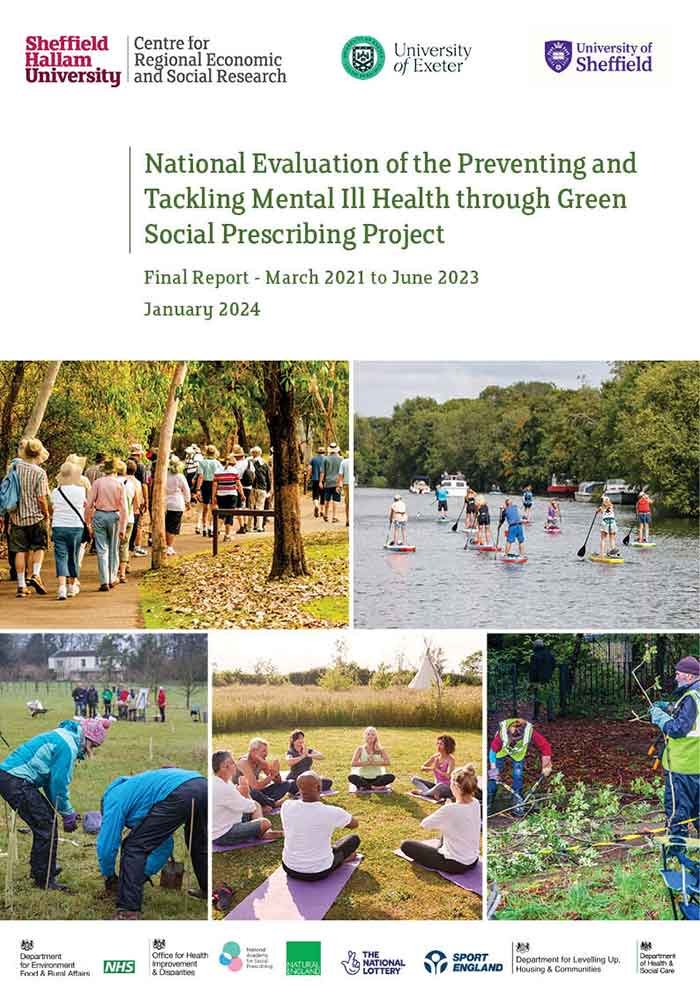Practitioners Information (main page)
Policies & Initiatives
Practitioners Information: Quick Links
UK and Scottish Policy on GSP
Green social prescribing is gaining support across the UK especially following the COVID-19 pandemic when it became more apparent that being outdoors benefited mental health. At both a local and national level the natural environment is considered a valuable resource. In Scotland ‘Our Natural Health Service’ policy aims to supports services across a range of nature-based activities, to bring health and social services, environment and the third sector closer together. The overall vision is to improve physical and mental health outcomes as well as making access easier for all.[19]
Although there is little cost-effectiveness data, Nature-based health interventions (NBHI) have the potential to save the NHS money, particularly for mental health problems.
Several recent studies have estimated a social return on investment (SROI) of between £1.88 to £6.88 per £1 invested. (4,14, 25).
Social return on investment (SROI) is used to quantify a social, environmental and monetary value to a range of outcomes. The calculation considers social value for every £1 spent and it is recommended for use when calculating the monetary value of nature-based health interventions.(8)
Initiatives in Lothian and Scotland
Green Health Partnerships were supported in 2018 by NatureScot in four areas to develop pathways for GSP and engage more people in nature-based activities. The four partnerships include Dundee, Lanarkshire, North Ayrshire and Highland. It takes time to embed pathways and overcome hurdles of implementation, but these partnerships report positive outcomes for patients and prescribers.
NHS Lothian Green Health was established in 2019 to coordinate a system-level approach to embed green health activities across NHS Lothian and the 3rd sector for the benefit of patients, the wider community and environment. The strategic framework can be found here.
Initiatives elsewhere in the UK
Across the UK, support for GSP is growing but the funding, referral processes, and available nature-based activities vary nationally and regionally. (27-31)
During the COVID-19 pandemic the UK government invested £5.77 million in a project managed by the Department for Environment, Food and Rural Affairs (DEFRA) with support from other key stakeholders. They funded seven sites across England to test how to embed green social prescribing into communities with a focus on improving mental health outcome, reducing the demand on the health service, developing best practice and reducing health inequalities. Over 8,000 people were referred to a green social prescribing activity during the programme from April 2021-March 2023.
The main outcomes of this project were:
Positive improvements in mental health and wellbeing of people who took part part including statistically significant improvements in happiness, life satisfaction, and levels of anxiety or depression.
Increased levels of physical activity of participants.
Strong engagement of communities experiencing high levels of social inequalities.
85% uptake of GSP when offered to people.
Increased trust between delivery partners and healthcare providers, leading to more referrals to suitable green activities.

